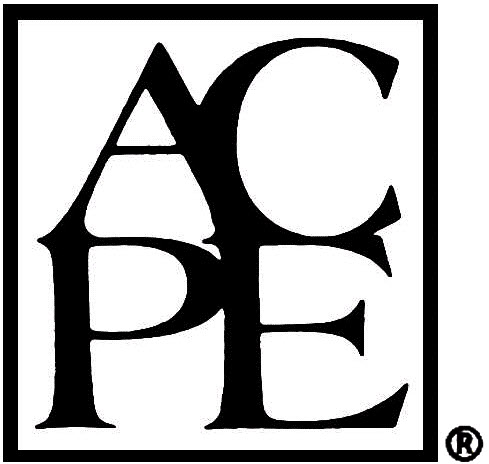By Pharmacists, With Pharmacists, For Pharmacists

A partnership between CPA and Charter Oak State College, the Pharmacist Refresher course is designed for pharmacists who wish to return to community pharmacy practice after an absence from practice for three or more years. The course consists of three modules, all of which have been approved for Accreditation Council for Pharmacy Education (ACPE) continuing credits.
The first two modules are administered online through Blackboard and consist of weekly study segments that allow course participants to work at their own pace, on their own time. The third module consists of a three-week, 90- hour ‘live’ experience in a community pharmacy. Participants will be asked to identify a pharmacy site to complete the third module. Eligible participants for the third module will be required to successfully complete Modules 1 and 2 first before they can enroll in Module 3.
Participants who complete all three modules will earn a Pharmacist Refresher Course Certificate from
Charter Oak State College, and will earn a total of 110 contact hours through CPA.
Please note: Participation is not required in all 3 modules. Participants can choose to complete only Module 1, Module 2, or both modules.
Course enrollment is administered by Charter Oak State College. To enroll, please call Charter Oak’s Registrar’s Office at (860) 515-3702. For questions about the course, please contact CPA VP, Operations Lisa Capobianco at lcapobianco@ctpharmacists.org or at (860) 563-4619.
View the Fall 2022 Schedule Here
View the Spring 2023 Schedule Here
Module Details
Module 1 (Cost: $550)
This online, 8-week self-paced homestudy module addresses the most commonly prescribed drugs, the most commonly used over-the-counter (OTC) medications, nutritional supplements, and herbal products as well as drug-drug interactions. Upon successful completion of this course, participants will earn 50 contact hours.
0106-0000-22-040-H01-P (50 contact hours; 5 CEUs-Knowledge-based)
Learning Objectives:
1. Identify the most commonly dispensed brand and generic drugs (the “Top 200”) and other commonly prescribed new drugs.
2. State for each drug their: indications for use, contraindications and common drug-drug interactions (including OTCs and nutritional supplements).
3. List of each drug their: usual dose, dosage forms and propensity for causing allergic reactions and side effects.
4. Explain to patients about the proper use of each of the drugs covered.
5. List and discuss the traditional therapeutic categories of OTCs.
6. List and discuss the common aliments amenable to treatment with OTCs.
7. Identify the limitations of self care/medication.
8. Identify and be able to recommend products within each category given specific patient information.
9. Identify potential drug-drug interactions between OTCs and Rx medications.
10. Identify and be able to assess the various types of alternative therapies/treatments.
11. Compare appropriate use of vitamins, minerals and nutritional products.
Module 2 (Cost: $550)
This online, 6-week self-paced homestudy module consists of two parts: a law section (which covers both state and federal law) and a section that covers third party issues and safe prescription processing practices. Upon successful completion of this module, participants will earn a total of 45 contact hours (including 15 contact hours of law).
Third Party Issues/Safe Prescription Processing Practices Section Details:
0106-0000-20-109-H04-P (30 contact hours; 3 CEUs-Application-based)
Learning Objectives:
- Explain Medicare, Medicaid, Pharmacy Benefit Managers and cash discount programs.
- Explain deductibles, co-payments, maximum benefits, tiered benefits and formulary lists.
- Identify documentation, counseling and record keeping requirements
- Explain Product Selection Codes (aka Dispense as Written – DAW-codes) and NCPDP formats.
- Explain Prior authorizations, step therapies and other reject messages.
- Compare audit types and payment adjustments.
- Compare new and refill prescription requirements.
- Identify the various transmission methods of a prescription to a pharmacy and the regulations concerning those methods.
- Explain ways to perform prospective, concurrent and retrospective drug utilization reviews.
- Explain the OBRA counseling requirements.
- Identify ways to maintain the prescription in a manner that satisfies legal and third party requirements.
- Identify a quality assurance program for error prevention and reporting.
Law Section Details:
0106-0000-22-080-H03-P (15 contact hours; 1.5 CEUs-Knowledge-based)
Learning Objectives:
- Explain all laws pertaining to prescription processing of non-controlled substances and the record-keeping of
those substances. - Compare laws pertaining to pharmacists’ supervision of interns, technicians and other personnel.
- Identify the duties and limitations of the technicians.
- Explain the ethics of filling prescriptions and confidentiality.
Module 3 (Cost: $550):
This module is a supervised, three-week, hands-on practicum in a community pharmacy.
The participant will incorporate knowledge acquired from Modules One and Two with experience gained from Module Three to provide effective counseling and safe dispensing practices. A current pharmacist
license, professional liability insurance and health and disability insurance are required to participate in Module Three. Upon successful completion of this module, participants will earn 15 contact hours.
0106-0000-21-077-L04-P (15 contact hours; 1.5 CEUs-Application-based)
Learning Objectives:
- Design a personal quality assurance plan that will ensure safe prescription practices.
- Explain to a patient the proper use of their prescription at the time of dispensing.
- Select the appropriate OTC product for a patient and counsel them on its use.
- Identify methods to incorporate proper legal documentation in the filling and record keeping of prescription drug processing.
- Demonstrate competence in third party issues with regard to billing, record keeping and prescription processing.
- Demonstrate defined competencies in the various aspects of pharmacy practice.

The Connecticut Pharmacists Association is accredited by the Accreditation Council for Pharmacy Education as a provider of continuing pharmacy education. Pharmacists who successfully complete all 3 modules will receive 110 contact hours of CPE credit (11 CEUs) for this knowledge and application-based course. Statements of credit will be uploaded to your NABP profile within 60 days of successful completion course.
